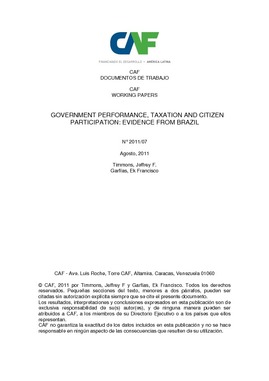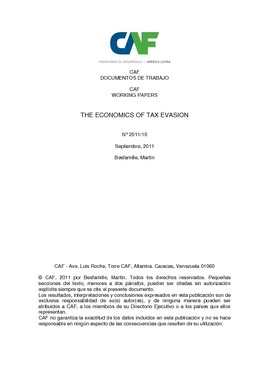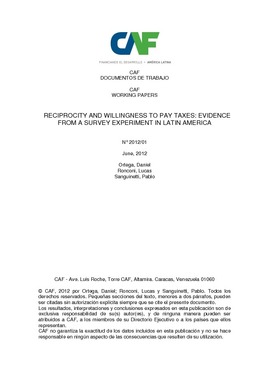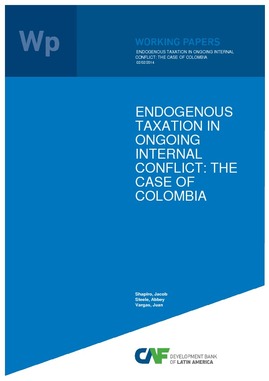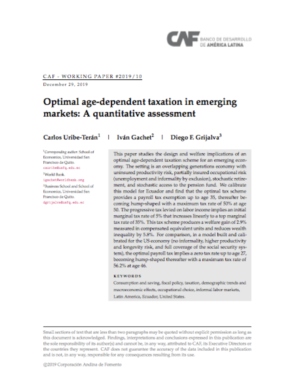Buscar
Mostrando ítems 11-16 de 16
Government performance, taxation and citizen participation: evidence from Brazil
(CAF, 2011)
Fiscal contract theories of the state hypothesize that government performance affects tax collection and that institutions that foster representation and accountability link taxes and services. These propositions have yet ...
The economics of tax evasion
(CAF, 2011)
This paper begins by reviewing the problem of tax evasion measurement. Based on available data, I conclude that this problem is far from being negligible, both for developed and developing countries. I also present in more ...
Reciprocity and willingness to pay taxes: evidence from a survey experiment in Latin America
(CAF, 2012)
We provide the first experimental attempt at measuring reciprocity in tax collection in developing countries, where enforcement institutions are weak, and where tax rates and in general tax observance is lower. In a household ...
State formation, tax structures and mineral abundance Chile and Peru, 1850-1930s
(CAF, 2010)
The paper assesses the impact of natural resource abundance on state formation by looking at how tax structures responded to booming periods in the early ages of the Chilean and Peruvian republic, 1850-1930s. The paper ...
Endogenous Taxation in Ongoing Internal Conflict: The Case of Colombia
(CAF, 2014-02)
Recent empirical evidence at the cross-country and subnational levels suggests that internal conflicts harm state capacity and tax performance. On the face of it this is odd: internal conflict should create strong incentives ...
Optimal age-dependent taxation in emerging markets: A quantitative assessment
(CAF, 2019-12-29)
This paper studies the design and welfare implications of an optimal age-dependent taxation scheme for an emerging economy. The setting is an overlapping generations economy with uninsured productivity risk, partially ...


